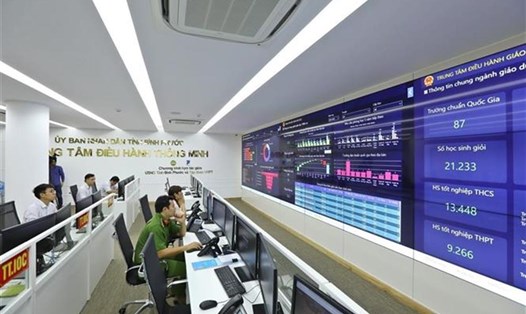On the afternoon of October 25, in Hanoi, the Ministry of Public Security organized a National Data Strategy Workshop and provided comments on the draft Data Law.
Colonel Vu Van Tan - Deputy Director of the Department of Administrative Police for Social Order (C06, Ministry of Public Security) - emphasized that in order to achieve digital transformation, we must first create a data source, which will be used to bring value to the people.
According to Colonel Vu Van Tan, after 2.5 years of implementing Project 06, it has brought about the most basic things to create data groups, in which it affirmed 5 groups of issues: The Project has provided essential public services (basic foundation for data creation); served economic development; created digital citizens; created a shared data set for related units to exploit; advice value, policy planning for localities and the Government.
However, during the implementation of Project 06, a number of bottlenecks were identified (legal bottlenecks, business data bottlenecks, infrastructure bottlenecks, security bottlenecks, and resource bottlenecks). These bottlenecks must be resolved to develop Project 06, as well as to be resolved in digital transformation.
Also according to Colonel Vu Van Tan, according to the goal, the end of Project 06 will create the most basic data set about people, but to achieve the set goals, there needs to be other legal systems related to data, including the Law on Data.
According to the leader of C06, it is necessary to determine the viewpoint that data must be put into use as soon as it is digitized to serve the people, not waiting for a common group to put it into use.
We have the concept that data must be digitized before it can be used, but in reality, through the implementation of population data, we see that when data is digitized, it must be used immediately to survive. In addition, which data is the original, core data, when created, will be the foundation for creating other data.
For example, the population data created will be the foundation for the judicial sector to continue digitizing. In terms of data and data usage, there needs to be synchronization in exploitation to ensure security and safety, which requires strong solutions.
"We are now talking about a lot of data, talking about a lot of AI - artificial intelligence. We all understand and recognize that we must apply AI to data. But really, if the data is not mature, how can we talk about AI?", Mr. Tan said.
Also at the workshop, delegates and experts continued to provide policy advice to agencies and organizations to accompany the Government in building data sets. On the basis of synchronously connecting national databases on population, land, and enterprises, thereby creating a foundation for streamlining the apparatus and reforming administrative procedures more substantially.
Delegates also expressed their views that developing the digital economy creates new momentum for growth; promotes the application of digital technology in all industries and fields, creating new business models.
By 2030, Vietnam aims to be among the top 50 countries in the world and ranked 3rd in ASEAN in e-Government and digital economy.






